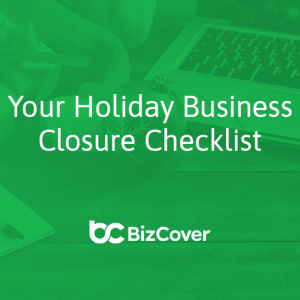Opening your own shop is an adventure filled with exciting possibilities and opportunities for innovation. This comprehensive guide outlines key steps to establish a small retail business, offering practical insights from market research to staff hiring, ensuring you start on the right foot.

Do your research
Like any worthwhile venture, setting up your own retail store begins with thorough research. Ask yourself key questions: What products or services are you passionate about selling? Are you leaning towards an online retail business, a physical store, or a combination of both? How does this decision influence your operational plan?
Investigate your competitors closely. What are they doing well, and where do they fall short? This insight will help you carve a niche for your store. Equally important is identifying your target audience. Who are they, and what are they looking for in a retail store like yours? Understanding their needs and preferences is vital in tailoring your offerings.
Consider the potential profitability of your venture. Are there others successfully operating in this space? A lack of competition might signal a lack of market demand. In that case, you might have to rethink your strategy. Lastly, try to identify potential challenges. Knowing what you’re up against early on gives you a head start in navigating roadblocks successfully.
Choose a business structure
Before you can open your own shop, you’ll have to choose the right business structure. This choice will impact everything from taxation to personal liability and capital raising ability.
1. Sole trader
The sole trader option is favoured for its simplicity and minimal paperwork. It’s an ideal choice for those who prefer full control over their business operations and decisions. However, this structure comes with significant personal liability. Should your business incur debts, your personal assets could be at risk.
Recommended reading: Common types of sole trader businesses in Australia
2. Partnership
A partnership allows you to team up with like-minded individuals, sharing profits, losses, and management responsibilities. It’s a flexible structure that fosters collaboration, where each partner contributes to the business’s success. But a partnership structure also requires trust and clear communication, as partners are jointly responsible for business obligations.
3. Company
Establishing a company is a move towards a more professional setup. It treats your small retail business as a separate legal entity, providing a shield for your personal assets against business liabilities. This structure is more complex and involves higher setup and maintenance costs but offers significant benefits in terms of asset protection and potential growth.
Each business structure offers unique advantages and challenges. Evaluate your business needs, future growth plans, and risk appetite to choose a structure that supports your small retail business’s long-term strategy.
Design a retail business plan
A well-crafted business plan is your next step in launching a successful retail store. Your business plan should be a detailed guide that not only defines your business model but also serves as a reference point for all your strategic decisions.
Here are a few elements to include in your retail business plan:
1. Executive summary
Your executive summary offers an overview of what your retail store represents. It should cover the core aspects of your business, including your mission, target market, and objectives.
2. Operational strategy
Detail your operational plan, including organizational structure, product or service offerings, and information about vendors and suppliers. This section should provide a clear picture of how your store will operate daily.
3. Market analysis and trends
Conduct a thorough market analysis. Understand your target market, identify your competition, and analyse market trends. This will help you position your own store effectively in the market.
4. Risk management
Identify potential risks and develop strategies to mitigate them. Understanding these risks will help you prepare for unforeseen challenges.
5. Staffing
Plan your staffing needs, considering both daily operations and peak times. Outline your approach to hiring, training, and team development.
6. Goals and action plans
Establish clear, measurable goals for your retail store. Outline the specific actions needed to achieve these goals, ensuring they are realistic and attainable.
7. Financial planning
A crucial part of your plan is financial forecasting. Detail your budget, funding sources, and financial projections, including profit and loss forecasts.
8. Marketing strategies
Develop a strong brand and marketing strategy. This should include how you will attract and retain customers, and how you will promote your own store both online and offline.
Your retail business plan should be a living document, flexible enough to evolve as your own store grows. It should reflect your vision and set a clear path towards achieving your business goals.
Secure funding
Once your business plan is in place, it’s time to secure the necessary capital. Consider how much you need to start a retail business, taking in account inventory, operational costs, staffing, and other initial expenses. Traditional bank loans are a common route, but remember, they come with their share of risks and liabilities. Ensure your retail business plan is detailed and robust to improve your chances of securing a loan.
Exploring government-sponsored loans or grants can provide a safer and sometimes more beneficial funding option. These programs are designed to support new businesses and can offer favourable terms.
Angel investors present another avenue. These high net-worth individuals bring not only capital but sometimes valuable business acumen and networks. However, they generally look for a stake in your small retail business and a considerable return on their investment. Ensure your retail business plan is persuasive and comprehensive when approaching potential angel investors.
As a last resort, consider reaching out to family and friends. While this can be a more accessible source of funds, remember to formalise any agreements with clear, written contracts. This approach protects both your relationships and business interests in case of unforeseen challenges.
Name your own store
Think of your business name as the first handshake with potential customers—it should be memorable, meaningful, and reflective of your brand’s core values. Whether it’s straightforward or creatively unique, your business name sets the tone for customer expectations.
Once you’ve shortlisted potential names, you’ll have to verify their availability. Check if the name is already registered or trademarked, which you can easily do through ASIC’s business name register and IP Australia’s* trademark database.
Securing your business name legally is the next step. Register your name with ASIC and trademark it with IP Australia. That will grant you the exclusive rights to that name, protecting your brand and its reputation.
Reach out to suppliers
Creating a successful small retail business heavily depends on the strength and reliability of your supplier and vendor relationships. Key considerations include aligning their pricing with your financial plan and assessing their reliability and reputation. A supplier known for timely deliveries and exceptional customer service can be a lifesaver, especially when unexpected challenges arise.
Equally important is the quality of products or services they offer. Your suppliers’ products will reflect directly on your brand. So opting for suppliers who maintain high-quality standards will help maintain your own store’s reputation.
The smart move would be to cultivate relationships with multiple vendors and suppliers. This not only gives you a safety net should one supplier fail to meet demands, but it also offers flexibility in product offerings, keeping your store fresh and appealing to customers.
Assemble your workforce
Hiring the right staff is a step towards ensuring a memorable experience for every customer who walks through your doors. That’s why you want people who can connect with customers and effectively promote your small retail business.
When interviewing candidates, focus on their attitude and potential to align with your brand values as much as their retail experience. Operational skills can be taught, but traits like enthusiasm, trustworthiness, and a customer-centric approach are innate. Look for candidates who naturally embody these qualities. A friendly, trustworthy face can often make a lasting impression on customers and encourage repeat visits.
Ensure that your hiring process is inclusive and fair. As you conduct your interviews, steer clear of any questions that could be deemed discriminatory. The goal is to create a diverse team that resonates with the demographics of your customer base.
Get your business registered
In order to legally operate your own store, you’ll have to register it. This process begins with obtaining an 11-digit Australian Business Number (ABN) from the Australian Business Register (ABR).
If you’re starting a company, you’ll also require an Australian Company Number (ACN) from the Australian Securities and Investments Commission (ASIC). This 9-digit number is essential for company identification and must be included on official company documents.
Get the right licence for your small retail business
Each type of retail operation comes with its own set of legal requirements and licensing. To find out which license your retail business will need, you can turn to the Australian Business Licence and Information Service (ABLIS). By using their search tool, you can easily identify the licenses and permits tailored to your own store.
Insure your small retail business
A key aspect often overlooked in the excitement of starting your own retail store is business insurance. However, getting retail insurance is essential to shield your business from unforeseen risks and liabilities.
Public Liability Insurance covers potential injuries or damages caused by your business to customers or the public. Business Insurance offers protection against business interruptions, as well as your store’s contents and stock. Meanwhile, Cyber Liability helps mitigate cyber risks and threats, ensuring that your small retail business remains secure in the digital space.
With BizCover, securing the right cover is straightforward and hassle-free. Get multiple quotes from leading Australian insurers in just minutes, choose the retail insurance that fits your needs and enjoy peace of mind in no time. Start your retail journey with confidence — visit BizCover today.
© 2023 BizCover Pty Limited, all rights reserved. ABN 68 127 707 975; AFSL 501769


